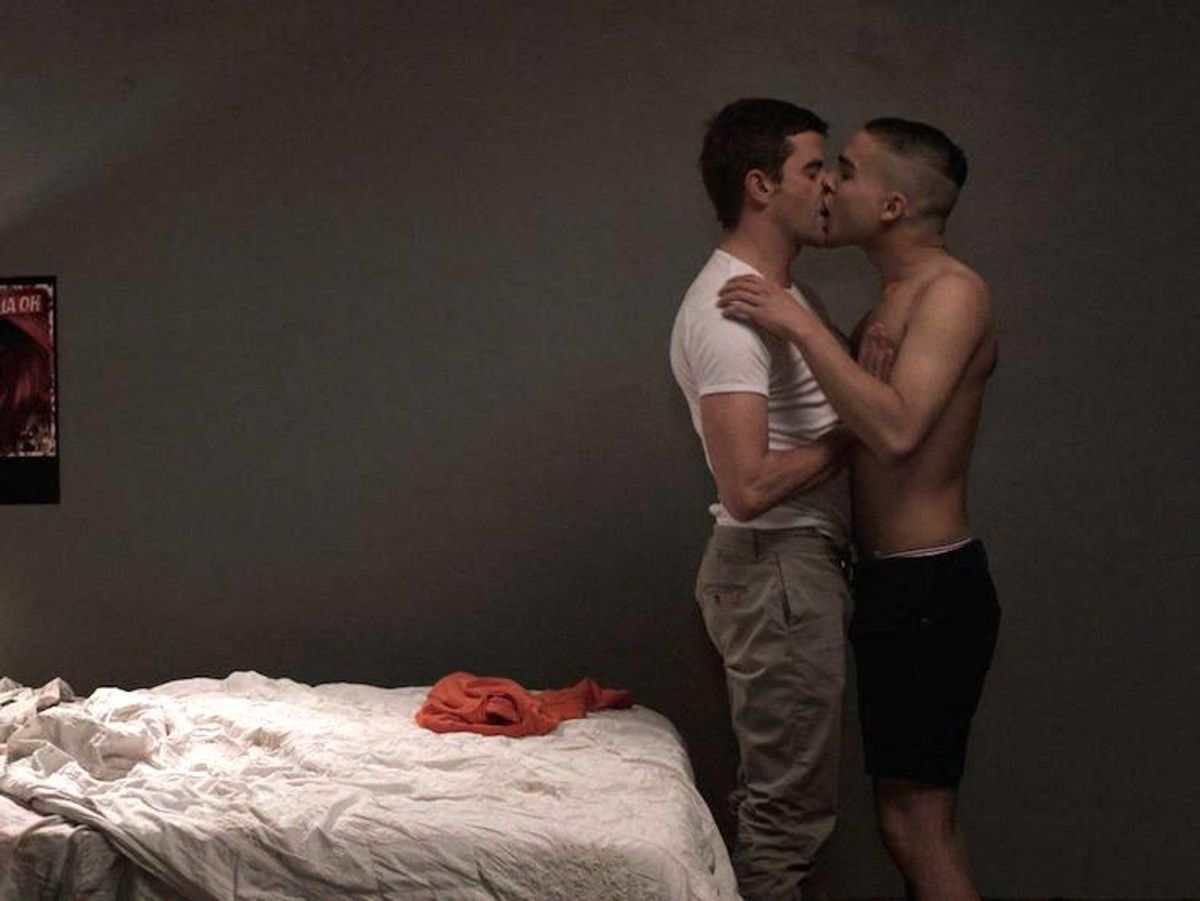Armond White
The Poetic Cinema of Jerome Reybaud’s 4 Days in France
The Poetic Cinema of Jerome Reybaud’s 4 Days in France

By continuing to use our site, you agree to our Private Policy and Terms of Use.
The Poetic Cinema of Jerome Reybaud’s 4 Days in France

Queer black poet Audre Lorde's 1985 essay "Poetry is not a Luxury" provides the best entry that I can think of into the world of Jerome Reybaud's debut film 4 Days in France (Jour de France). Lorde writes of "The quality of light by which we scrutinize our lives has direct bearing upon the product which we live, and upon the changes which we hope to bring about through those lives." That fits Reybaud's use of poetic cinematic devices (from breathtaking symbolic landscapes to moody and comic but always portentous encounters) during the film's mysterious, nearly two-and-a-half hours length.
Reybaud searches the consciousness of a gay male couple, Pierre-Thomas (Pascal Cervo) and Paul (Arthur Iqual), who go their separate ways. On the road, they sense their connection to the French countryside and its various inhabitants. The light of the Alps (a literal aspect of Lorde's essay, captured here by videographer Sabine Lacelin), the green forests and red earth, affect the senses and adds nature's sensual mystery to each man's personal quest which includes sexual and social self-examination.
The similarity to Lorde's manifesto makes 4 Days in France an unusual gay film for this period. Identity politics block many gay filmmakers from being introspective; the social-justice craze critiques others without attention to the private longings and habits define our relationships. This leads to movies that turn gay life into social statements rather than artistic expression. Films like Carol and Moonlight which contradict Lorde's wisdom: Gay movies are not a luxury.
Related | Moonlight and the Myth of the Pathetic Queer
Through sexual frankness, Reybaud connects to those French gay movies that readily admit the randy and roguish aspects of queer culture but that bourgeois American gay films suppress. Both Pierre-Thomas and Paul keep track of each other through Grindr, while also looking for new hook-ups. Paul instantly recognizes Pierre-Thomas via a cock-and-ball photo text message. They also meet gay men from different social strata with unique sexual habits: A 20-year-old risk-taker who wants to get away from his small-town. A middle-age bar keep who turns down a quick blow job because "The moment has passed. Too many words between us. I need solitude, not those priest and shrink notions."
By going beyond the New York Times Lifestyle version of gay life, Reybaud revives the cinematic self-discovery that inspired such key road movies as Kings of the Road, Easy Rider, Five Easy Pieces, Kansas City Trucking Co. and Duscatel-Martineau's classic The Adventures of Felix. Reybaud's duo gay male odyssey examines the GPS of sex as a metaphor. "France is huge, full of men, full of possibilities," Pierre-Thomas says. His restless travels recall the masculine journey in John Ford's military films that scholar Tag Gallagher described as "Life is a constant passage without a map, and with only immediate purposes; the seduction of the moment gives life its vitality."
Throughout4 Days in France, Pierre-Thomas and Paul contend with "the precariousness of freedom and self-responsibility" that could "lead them astray into aberrations or death." The universality of their quest is felt through frequent encounters with eccentric women. (Reybaud's poetic motifs include a parade of French female icons: Fabienne Babe, Natalie Richard, Liliane Montevecchi, Dorothee Blanck, Marie France--none as sentimental as the females in Kelly Reichardt's road movie Certain Women).
Wherever they go, whoever they meet, Reybaud's fractured couple share one motivation: "I desire what the other desires of me." Maybe only a poetic narrative can achieve this existential approach to gay passage. As Audrey Lorde prescribed, "There are no new ideas. There are only new ways of making them felt."
Beware of the Straightors: 'The Traitors' bros vs. the women and gays